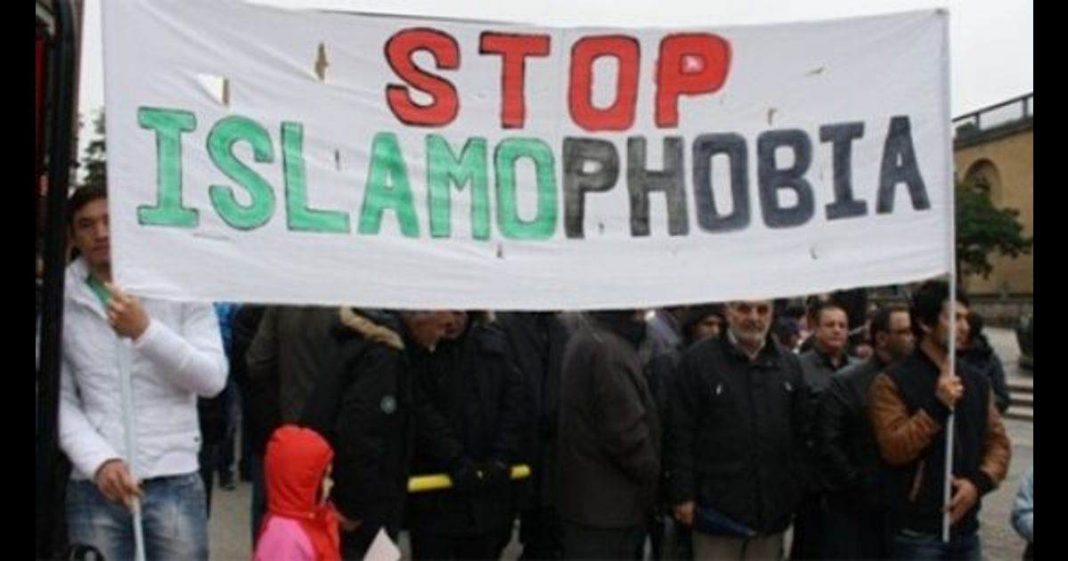Shah Mahmood Qureshi, Pakistan’s Foreign Minister, has said that Pakistan would not allow the fascist Narendra Modi government to round up Muslims to be beaten and killed in India. Pakistan shall bring the rise of Islamophobia in India into the consideration of the international community, he cautioned. Analysts believe anti-Muslim political rhetoric of the ruling party in India is likely to be dangerous for the country’s largest religious minority, Muslims.
Pakistan will not stay silent, allowing the fascist Modi government to round up Muslims to be beaten & killed. To have their nationalities stripped, their livelihoods robbed, their demography changed and their future insecure. 3/3
— Shah Mahmood Qureshi (@SMQureshiPTI) May 26, 2020
In a series of tweets, the foreign minister said India’s discriminatory treatment against Muslims is aimed at having their nationalities stripped, their livelihoods robbed, their demography changed and their future insecure.
Sharing a statement from UN Secretary-General Antonio Guterres on Islamophobia, FM Qureshi said, “we will not stand by and let another Gujarat [massacre] happen.”
Read More: Muslim killed on New Year’s Day highlights violent Islamophobia in India
He said world bodies like the United Nations (UN) and Organization of Islamic Cooperation (OIC) have supported Pakistan to counter rising cases of anti-Muslim violence and Islamophobia in India to initiate a working group for collective action.
Pakistan has consistently appealed to @UN & @OIC_OCI to condemn Modi’s Hindutva supremacist ideology with relentless Islamophobia & violence/regional instability perpetuated. We also welcome @antonioguterres agreement on need to counter Islamophobia & OIC-IPHRC’s earlier censure.
— Shah Mahmood Qureshi (@SMQureshiPTI) May 26, 2020
“Pakistan has consistently appealed to the UN and OIC to condemn Modi’s Hindutva supremacist ideology with relentless Islamophobia and & violence/regional instability perpetuated,” Qureshi said.
Countering Islamophobia is “top priority”
Earlier in the day, UN Secretary-General Antonio Guterres said that countering anti-Muslim hatred and Islamophobia is his “top priority” and he “fully agrees” with the assessment that it could pose a threat to international peace and security.
We will not stand by and let another Gujarat happen. To counter rising cases of anti-Muslim violence & Islamophobia, Pakistan has been supported by the @OIC_OCI to initiate working group with the @OICatUN for collective action.
2/3https://t.co/1fc5KqdRFV— Shah Mahmood Qureshi (@SMQureshiPTI) May 26, 2020
The UN chief gave the statement recently at the virtual meeting of Organisation of Islamic Cooperation (OIC) member states at the United Nations (UN) in response to the comments from Pakistan’s Ambassador to the UN, Munir Akram, who drew his attention to the rising cases of anti-Muslim violence and Islamophobia in India and urged him to adopt a more focused and consistent system-wise approach to fully tackle the menace.
Speaking at the meeting organized by OIC on the theme of “COVID-19 Solidarity: Promoting Co-Existence and Shared Responsibility”, Guterres voiced his concern over the rise of Islamophobia and called for fighting this phenomenon collectively, the informed sources said.
Read More: Islamophobia in India: New attacks on Indian Muslims
After a recent wave of Islamophobia in India, the relations between the Arab world and PM Modi were seen being jolted. Jyoti Malhotra, a prominent Indian Editor, noted that “India’s carefully cultivated Gulf policy has been at risk of unravelling over the past fortnight, with the Organisation of Islamic Cooperation, the Kuwaiti government, a UAE royal princess, and the Arab intelligentsia decrying hate speeches by Indian nationals accusing the Tablighi Jamaat of deliberately exacerbating the coronavirus pandemic as well as a crude tweet by a BJP MP on the sexual impulses of Arab women”.
Muslim world condemns India
Recently, the Organization of Islamic Cooperation (OIC) in a two-part tweet condemned the violence in Delhi, ‘expressing its sincere condolences to the families of the victims and describing the acts as ‘heinous’.
“The OIC calls on Indian authorities to bring the instigators and perpetrators of these acts of anti-Muslim violence to justice and to ensure the safety and security of all its Muslim citizens and the protection of Islamic holy places across the country,” the tweet said.
#OIC–#IPHRC condemns #India’s ‘growing tide of #Islamophobia’ #APPNews #Covid_19 #StayatHome #CoronavirusPandemic @OIC_OCI @OIC_IPHRC @ForeignOfficePk @UN @SMQureshiPTI https://t.co/bX5VA0aPxA via @appcsocialmedia pic.twitter.com/SSi6weBQUL
— APP (@appcsocialmedia) April 19, 2020
Iranian Supreme Leader Ayatollah Ali Khamenei urged India to ‘confront extremist Hindus’ and ‘stop the massacre of Muslims, adding to the international fallout over deadly violence in New Delhi.
“Iran condemns the wave of organized violence against Indian Muslims,” Foreign Minister Mohammad Javad Zarif tweeted, in response to which New Delhi summoned the Islamic Republic’s ambassador and lodged a protest.
Similarly, Turkish President Recep Tayyip Erdogan hit out against ‘massacres’ of Muslims in India after communal riots in New Delhi left at least 50 dead. “India right now has become a country where massacres are widespread. What massacres? Massacres of Muslims? By who? Hindus,” Erdogan said during a speech in Ankara after violence broke out this week between mobs of Hindus and Muslims over a citizenship law.
In this regard, Professor Christophe Jaffrelot, a senior research fellow at CERI-Sciences Po/CNRS, Paris, professor of Indian Politics and Sociology at King’s India Institute, London, and Haider Abbas Rizvi, an Uttar Pradesh-based Information Commissioner, wrote an article for The Indian Express to highlight that India has lost friends due to the incumbent government’s anti-Muslim policies.
Read More: Muslim family denied home as Islamophobia in India rises
The authors argue that “Muslim countries with which India had increasingly good relations have become less friendly,” but, at the same time, Pakistan was able to seek diplomatic support in order to present its case for Indian occupied Kashmir (IoK).
It is yet to be seen whether Pakistan takes up the matter before the international community in the time of COVID-19 or not. Experts suggest that Pakistan must continue to expose the brutalities being committed by the Indian regime against Muslims.














